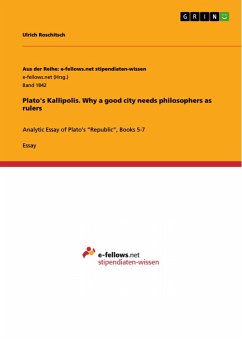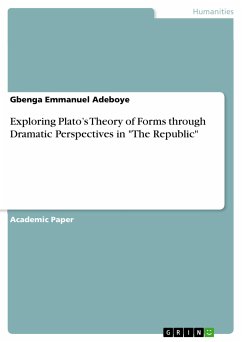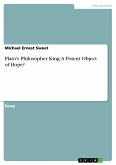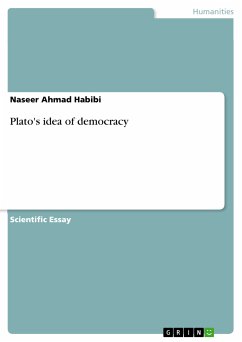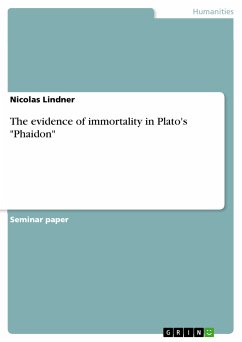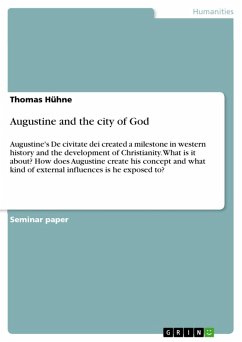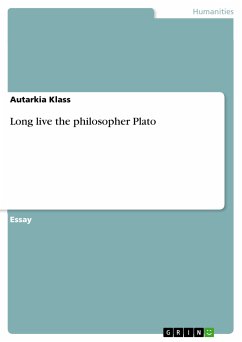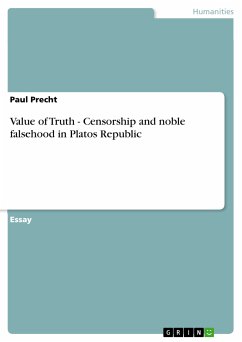Essay aus dem Jahr 2015 im Fachbereich Philosophie - Philosophie der Antike, Note: 1,3, University of Windsor (Faculty of Philosophy), Veranstaltung: Introduction to Western Philosophy, Sprache: Deutsch, Abstract: In his work “Republic”, the ancient Athenian philosopher Plato, scholar of the famous Socrates, develops his view of what a 'good' city and a 'good' individual should look like. Beginning with the question “What is justice?” in the books 1-4, he soon turns to the question about how a good city is organized and – related to that – by whom it should be ruled. Plato's main messages of the books 5-7 are that (1) there is a fundamental difference between what we see (appearance) and what things are (reality), as well as that (2) there cannot be knowledge about appearances, but only about reality. Furthermore, Plato claims that normal people can not know the reality. Only true and genuine philosophers could truly know what is real. Therefore they should be the rulers of the ideal city (Kallipolis). This essay retraces Plato's argumentation and includes an explaining illustration of the famous "Allegory of the cave", which Plato uses to make his case.
